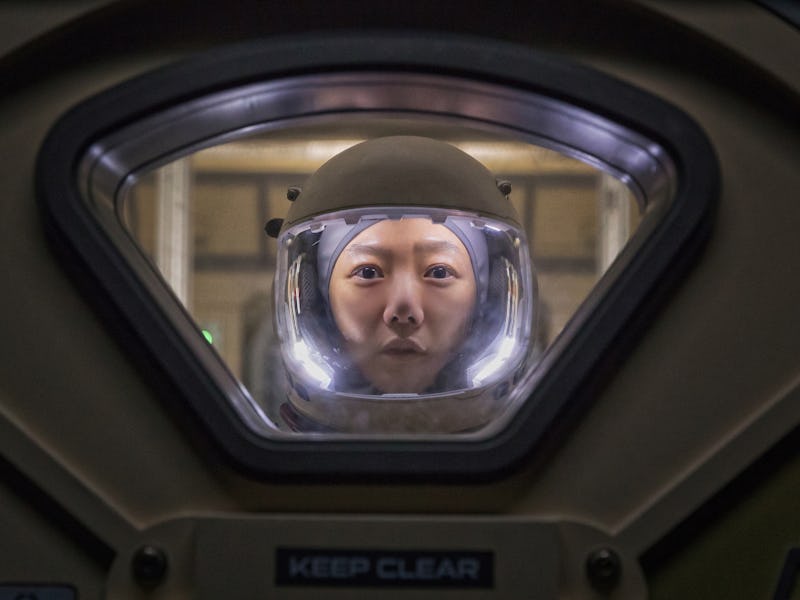Silent Sea review: Netflix’s supposed next Squid Game is anything but
Netflix paints itself into a corner with its latest international drama.

Comparing Netflix’s new Korean sci-fi drama The Silent Sea with cultural phenomenon Squid Game feels inherently unfair. Squid Game is the most watched Netflix original series ever, which is the hardest act a show could follow.
Yet the entire series seems to beg for the comparison. From shared cast members (Gong Yoo plays both the slap-happy salesman in Squid Game and Captain Han Yoon-Jae in The Silent Sea, for instance) to the social ladder-climbing survival stakes, there are many similarities. Unfortunately, it’s not a legacy The Silent Sea can live up to. Despite borrowing elements from all sorts of different sci-fi works, the result is a plodding, derivative saga that’s far less than the sum of its parts.
The Silent Sea is set in a world where water is the be-all end-all of society. Citizens are assigned a “water grade” based on social class that determines how much of the liquid they’re allowed to access. Pets are forbidden, fish are a thing of the past, and rain is a mythical event. So, in the nature of every sci-fi dystopia before it, humanity looks to the stars.
The action starts with Dr. Song Jian (Sense8’s Bae Doona), an astrobiologist sent on a salvage mission after a moon base’s entire crew, including Dr. Song’s sister, is obliterated by a radiation leak. But the base isn’t what it seems, and the mission holds more secrets than Dr. Song can imagine.
Gong Yoo and Bae Doona as Captain Han and Dr. Song.
The Silent Sea is 15 different sci-fi stories in a trench coat. As crew members keep falling prey to a mysterious disease, the action feels like Contagion or Alien. The discovery of a young child possibly holding the key to survival is straight out of 2020 Korean Netflix film Space Sweepers.
But the most glaring similarity is yet another space-based water adventure: the 2009 Doctor Who special “The Waters of Mars,” which followed the Doctor as he encounters a Martian base where future humans settled, only to find the planet’s water contained an intelligent virus that slowly turned the crew into “water zombies.”
While the action thankfully diverts from that plot, the rest of the series serves as a hodgepodge of sci-fi set pieces (crawling through ducts! escaping through lowering doors!) and poorly thought out emotional moments (everyone seems to have a tragic water-based memory).
The Silent Sea’s action can’t make up for its pacing.
What makes The Silent Sea different from Squid Game is that it’s trying to be countless other stories, and lacks the latter’s narrow vision and scope. Squid Game was about the game and not much else. The Silent Sea is about too many things, and none are allowed to develop fully.
The series was based on a short film, and that’s obvious given the pacing. Given the luxury of more time, it can be hard to figure out how to focus it. All the storylines are just too tempting, too enticing. Maybe the minds behind the show should have learned the lesson the characters learn about space colonization: just because you can, that doesn’t mean you should.
The Silent Sea is now streaming on Netflix.